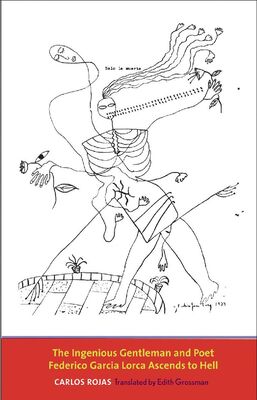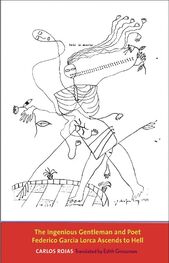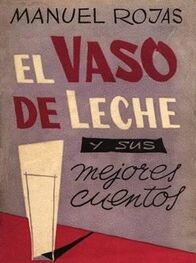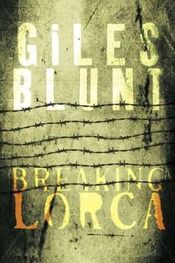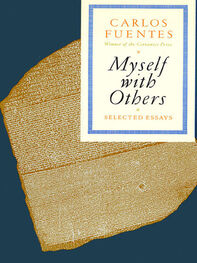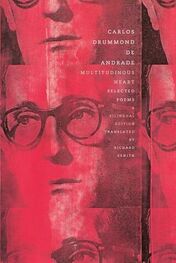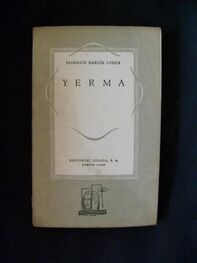“How should I interpret all this?”
“However you choose. Perhaps as a love story. Notice that now I’m the one who reveals to you our present and immediate past and not the reverse. We lived a circumstance diametrically opposed to that of my confessions, following the afternoons beneath the Vallcarca Bridge. When in a way I knew you knew, with no need to play the voyeur behind the mirror. Now I also know that whatever happens, it will be for the best and we’ll never see one another again.”
From the orchestra seats, he thought he detected on stage the silence of the denouement, as unforeseen as it was irrevocable. At the same time and in one of those sudden vacillations he was as prone to in hell as on earth, he thought that perhaps, in spite of what had been said by Sandro Vasari, the performance of other people’s memories would go on endlessly. So that the appearance of their sudden end was due only to a sudden fatigue that unexpectedly began to overwhelm him. Yet on stage he saw the stranger stand and pick up the briefcase that held the original.
“I suppose you’ll invite me to leave.”
“There’s no hurry at all,” Sandro replied, still sitting and spreading his arms in an imprecise gesture. “I didn’t ask you to go and in fact you can stay as long as you like, because you’ve already lost all power over us. I said only that we’d never see one another again.”
“You may be right. Are you really prepared to renounce your book?”
“I turn it over to you gladly and won’t change my mind.”
“Very well.” He rested a palm on Marina’s shoulder. She hesitated a few moments and then quickly caressed that hand, as if it were a statue’s.
“I’ll walk with you to the end of the garden,” said Sandro Vasari, while the stranger shrugged. “Don’t get lost in the labyrinth of streets when you leave this neighborhood, and hurry. You don’t want to get caught by snow on the highway.”
They went down together to the myrtle hedge along the sloping lawn and he observed that not once did Marina turn to look at them. Suddenly the sky began to darken and an absolute silence, with no wind and no birds, descended over the street. They couldn’t hear the grass growing, covered with dark spots of autumn, but their steps made a noise when they walked on it.
“All right, then. I suppose we say goodbye forever here.”
“We say goodbye forever here,” Sandro Vasari agreed. “Good luck with your book.”
“I’ll dedicate it to you and Marina.”
“You don’t have to, but do as you like.”
“I will in any case.”
The man Sandro accused of having ruled their lives, as if they were dreamed puppets, opened the car door, tossed the briefcase on one of the upholstered seats, and closed the door again. In that quiet the slam sounded like a pistol shot, while Marina shivered and for the first time turned to look at them. Across the street, in some of the houses also separated by small sloping gardens, lights began to go on. One would say they went on by themselves, as if each afternoon they punctually held a vigil for the absence of persons who had gone away, or were very distant, in a world populated only by Sandro, Marina, and the visitor. From his orchestra seat, he thought in a very quiet voice: “Soon it will be autumn on earth.”
“When you get to the end of Briarwood, turn right. Then, after the first light, take the street immediately to the left,” Sandro Vasari explained.
“I know, I know. Don’t worry.”
“I’m not worried at all. But as I told you, this is a labyrinth.”
“They say the only way to get out of a labyrinth is to always go left.”
“Perhaps that was true in other times and different latitudes. These days in this country, it isn’t.”
The stranger smiled when he opened the other car door. For an instant, while Marina looked at them and the clouds seemed to rise in the sky, they shook hands with the coldness of two strangers. Then, in a sudden, mutual impulse, before the stranger got into his car and Sandro walked back to the house, they embraced closely. Afterward, the car drove off toward the labyrinth.
The proscenium went dark and there was nothing on stage. Recalling that embrace, he thought of the one between Don Quixote and Cardenio at their first meeting in the Sierra Morena, at the end of Chapter XXIII of the First Part. When he read it in his adolescence, he hesitated about the vocation that had already been planned, telling himself he could never write anything as beautiful and as true. Now, dead though not tired and on the spiral of hell, he admitted willingly to not having written it, while a sudden fatigue was taking possession of him. Some shepherds had told the knight the tale of Cardenio, driven mad by love, who runs almost naked over the rugged terrain, sometimes very sane and other times quite deranged. As soon as chance arranges the meeting of the two madmen (the Ragged or Bad-looking One and the Sad One), Don Quixote descends from Rocinante, approaches that other stranger, and holds him to his chest. Cardenio, perhaps the less demented of the two, moves him back a little and looks into his eyes to see if he recognizes him. Or perhaps to determine whether in those eyes he can detect himself, with the correct and essential clarity that knowing oneself alive demands. Years later he told Dalí in Cadaqués that he had never read anything more profound and didn’t believe anything more profound had ever been written. Cardenio sees himself in Don Quixote as Don Quixote sees himself in Cardenio. Each of the two men is the fellow and mirror of the other: his confessor, his image, and his witness. At the same time and even though centuries have to pass for anyone to become aware of it, Cardenio is also Cervantes embracing the most successful and universal of his creations only to come upon himself in his eyes. No, he had never written anything like it in a fairly extensive work given the few years he walked the earth. No, and he didn’t lament it either. That was simply the way it was and with the unexpected fatigue came a serene resignation. In any case and somewhat in spite of himself, he admitted that Cervantes had determined his life as a writer (since the idea of never writing was very fleeting), in the same way that so long after his death, he had led Sandro Vasari and through him Marina to create the book and the sonata. Having that kind of influence, after years or after centuries, on strangers like them was the sole and the true immortality. But he did not proceed with that trend of thinking because an infinite exhaustion prevented it as he slowly slipped toward the center of himself, where waiting for him were peace, sleep, and a very dark light resembling nothingness.
CARLOS ROJAS is a novelist, an art historian, and since the age of fifty a creator of visual works of art. He was born in Barcelona and came to the United State as a young man. In 1960 he joined the faculty of Emory University, where he is now Charles Howard Candler Professor of Spanish Emeritus. He has received numerous important Spanish literary prizes, including the Premio Nadal. He lives in Atlanta.
EDITH GROSSMAN has translated into English many works by major Latin American and Peninsular writers, garnering an array of awards and honors.
